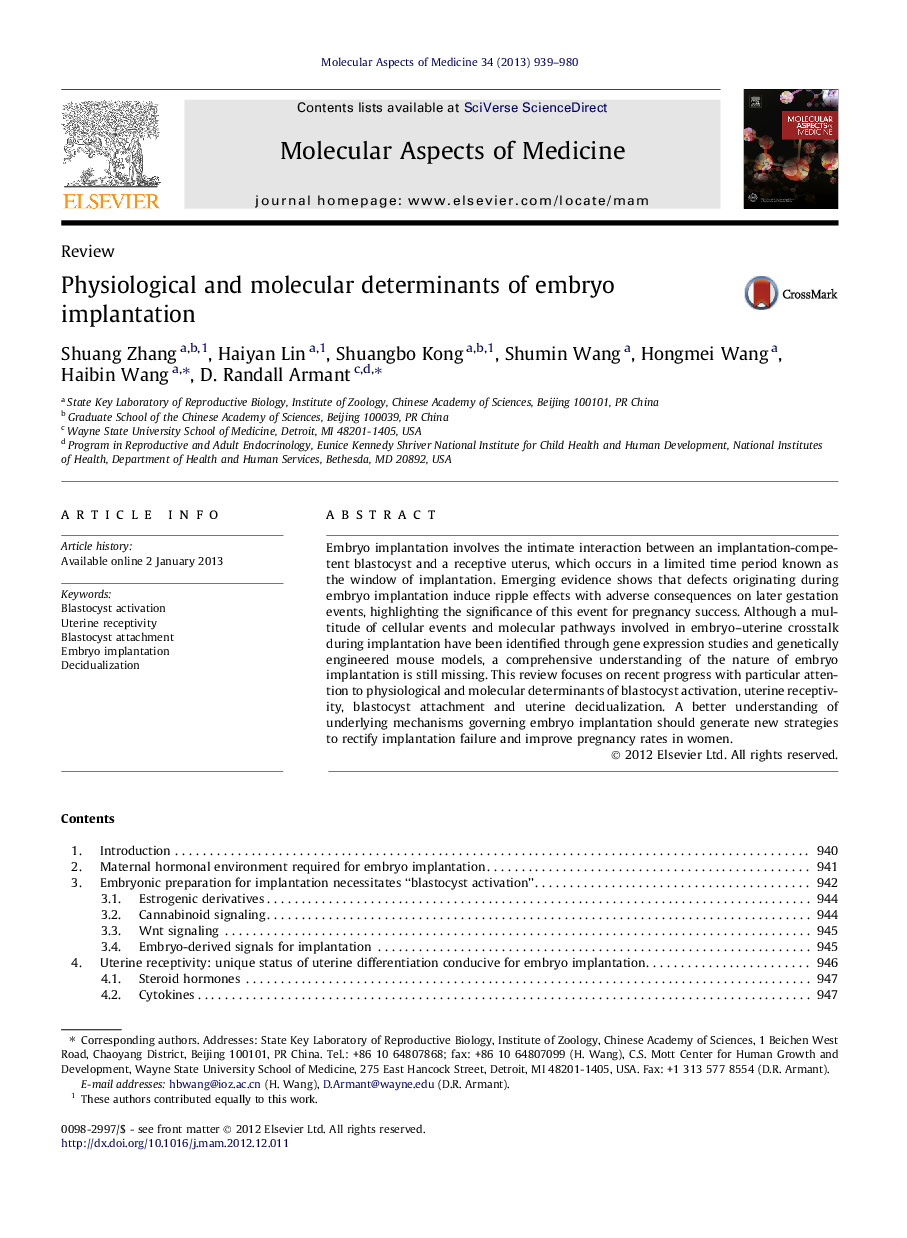| Article ID | Journal | Published Year | Pages | File Type |
|---|---|---|---|---|
| 1995733 | Molecular Aspects of Medicine | 2013 | 42 Pages |
Embryo implantation involves the intimate interaction between an implantation-competent blastocyst and a receptive uterus, which occurs in a limited time period known as the window of implantation. Emerging evidence shows that defects originating during embryo implantation induce ripple effects with adverse consequences on later gestation events, highlighting the significance of this event for pregnancy success. Although a multitude of cellular events and molecular pathways involved in embryo–uterine crosstalk during implantation have been identified through gene expression studies and genetically engineered mouse models, a comprehensive understanding of the nature of embryo implantation is still missing. This review focuses on recent progress with particular attention to physiological and molecular determinants of blastocyst activation, uterine receptivity, blastocyst attachment and uterine decidualization. A better understanding of underlying mechanisms governing embryo implantation should generate new strategies to rectify implantation failure and improve pregnancy rates in women.
